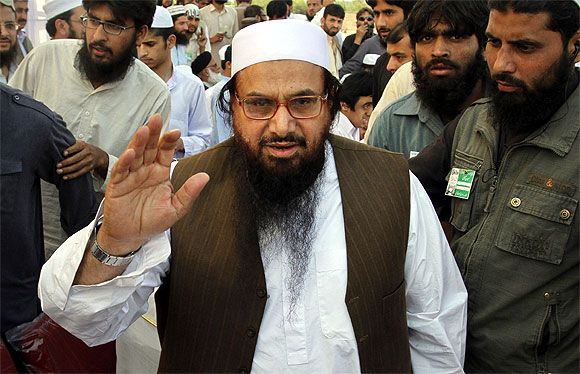Pakistan has "failed to significantly limit" outfits like the Lashkar-e-Tayiba and the Jaish-e-Mohammed from fundraising and recruiting while several terrorist groups that focus on attacks outside the country continued to operate from its soil in 2018, a damning US report has said.

The US State Department, in its Congressional mandated annual Country Reports on Terrorism for the year 2018, on Friday said even though the Pakistani government voiced support for political reconciliation between the Afghan government and the Taliban, it did not restrict the terror group and the Haqqani Network from operating in Pakistan-based safe havens and threatening the US and Afghan forces in Afghanistan.
“The (Pakistan) government failed to significantly limit Lashkar-e-Taiba and Jaish-e-Mohammad from raising money, recruiting and training in Pakistan -- and allowed candidates overtly affiliated with LeT front organisations to contest the July general elections,” the US State Department said in the report.
“Although Pakistan's National Action Plan calls to ensure that no armed militias are allowed to function in the country, several terrorist groups that focus on attacks outside the country continued to operate from Pakistani soil in 2018, including the Haqqani Network, Lashkar-e-Tayiba, and Jaish-e-Mohammed,” it said.
The report observed that the government and military acted inconsistently with respect to terrorist safe havens throughout the country.
"Authorities did not take sufficient action to stop certain terrorist groups and individuals from openly operating in the country,” it said.
Pakistan, it said, experienced significant terrorist threats in 2018, although the number of attacks and casualties have continued to decrease from previous years.
The major terrorist groups that focused on conducting attacks in Pakistan included Tehrik-e-Taliban Pakistan, Jamaat-ulAhrar, Islamic State's Khorasan Province, and the sectarian group Lashkar-eJhangvi al-Alami.
ISIS-K claimed several major attacks against Pakistani targets, some of which may have been conducted in collaboration with other terrorist groups. Separatist militant groups conducted terrorist attacks against governmental, non-governmental, and diplomatic targets in Balochistan and Sindh provinces, it said.
As a member of the Asia-Pacific Group on Money Laundering, Pakistan agreed to implement international standards to combat money laundering, terrorism finance and proliferation finance.
“Pakistan criminalises terrorist financing through the Anti-terrorism Act, but implementation remains uneven,” the State Department said.
In June 2018, the international terror financing watchdog FATF placed Pakistan on its “grey list” for deficiencies across its Anti-Money Laundering and Countering Financing of Terrorism regimes, specifically citing concerns over Pakistan's failure to fully implement the UN Security Council ISIL and Al Qaeda sanctions regime.
FATF noted that UN-listed entities, including LeT and its affiliates, were not effectively prohibited from raising funds in Pakistan or being denied financial services, it said.
“Although Pakistan's laws technically comply with international AML/CFT standards, authorities failed to uniformly implement UN sanctions related to designated entities and individuals such as LeT and its affiliates, which continued to make use of economic resources and raise funds. Pakistan committed to addressing these concerns as part of an agreed FATF Action Plan,” the report said.
FATF had last month retained Pakistan on the Grey List and warned the country of action for its failure in combating money laundering and terror financing.











 © 2025
© 2025